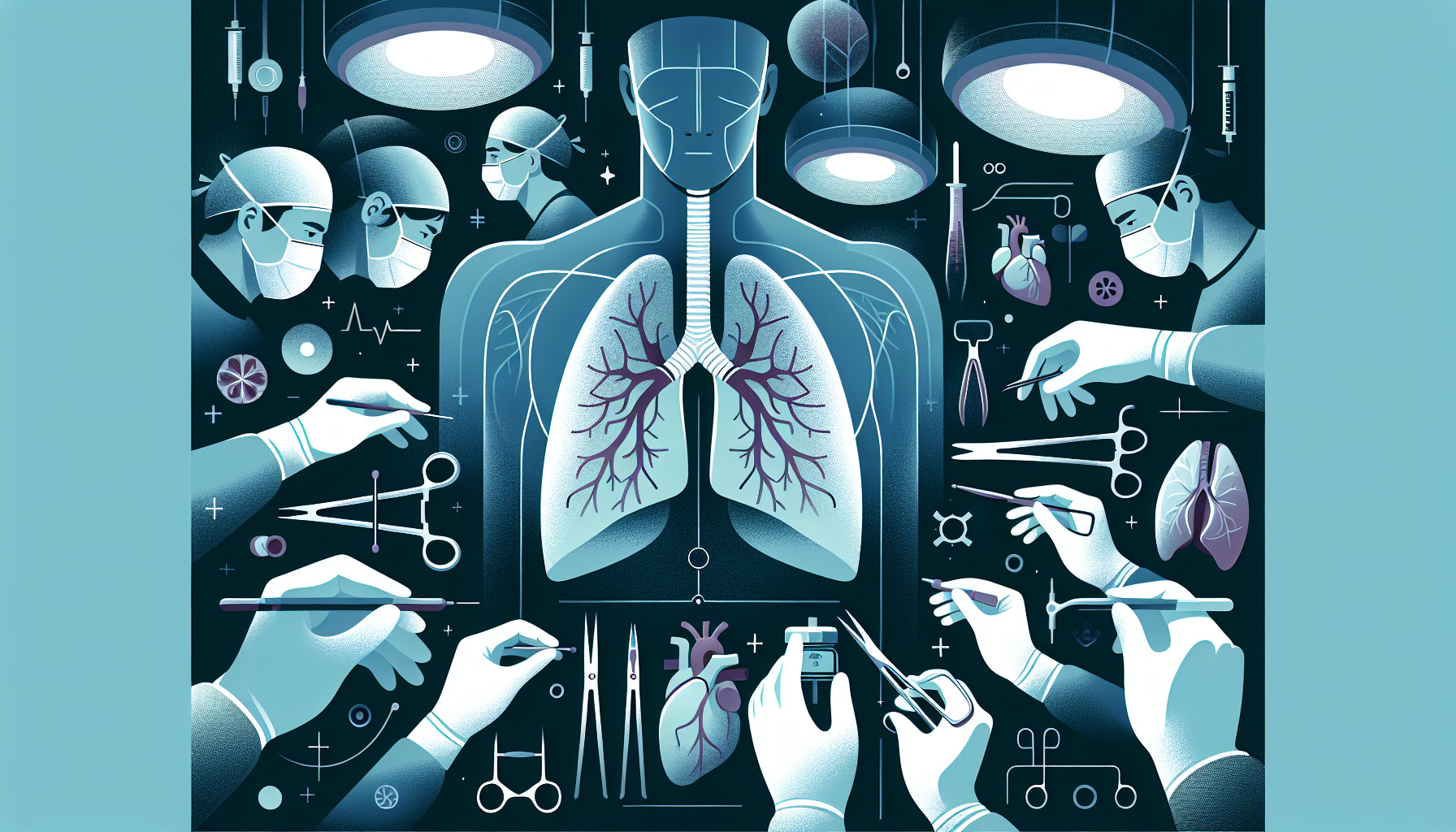Our Summary
This research paper discusses the challenges faced in making decisions about lung transplants for patients with a condition called idiopathic pulmonary fibrosis (IPF). IPF is a lung disease that gets progressively worse, causing the lungs to stiffen and making it hard to breathe. Even though some treatments can slow down the progression of the disease, many patients eventually need a lung transplant.
The current international guidelines for deciding when a patient should be referred for a lung transplant are not specific to IPF patients. This can be problematic because IPF has a wide range of symptoms and progresses at different rates in different patients. Moreover, severe flare-ups of the disease can suddenly worsen a patient’s condition.
The timing of referral and listing for a lung transplant is a crucial decision. It becomes even more difficult as patients with IPF often have other health conditions too, like heart disease or high blood pressure in the lungs. These need to be identified and managed before a lung transplant can be considered.
Another important point is that patients with IPF have a higher risk of developing lung cancer. This makes it important to monitor patients closely to ensure that a lung transplant would be appropriate and beneficial.
The researchers emphasize the need for early referral and regular check-ups for patients who may need a lung transplant in the future. This would help in better management of the disease and any other health conditions, and ensure the best possible outcome after a lung transplant.
FAQs
- What are the challenges in determining the ideal timing for lung transplant referral and listing for patients with idiopathic pulmonary fibrosis (IPF)?
- Why is a screening program for conditions such as coronary artery disease and pulmonary hypertension crucial before listing a patient with IPF for a lung transplant?
- Why is surveillance critical for lung transplant candidates affected by IPF, particularly in relation to lung cancer prevalence?
Doctor’s Tip
A helpful tip a doctor might tell a patient about lung transplant is to ensure they are closely monitored for any potential comorbidities, such as coronary artery disease, pulmonary hypertension, and lung cancer, as these can impact their eligibility for a transplant and post-transplant outcomes. Early referral and regular follow-up appointments are crucial for optimal candidate selection and successful outcomes.
Suitable For
Patients with idiopathic pulmonary fibrosis (IPF) who have advanced disease and have not responded to other treatments are typically recommended for lung transplant. These patients may experience acute exacerbations and have a decreased life expectancy. It is important to consider comorbidities, such as coronary artery disease, pulmonary hypertension, and lung cancer, when evaluating patients for lung transplant. Early referral and close follow-up are crucial for optimal outcomes.
Timeline
Before lung transplant:
- Patients with advanced idiopathic pulmonary fibrosis (IPF) may progress to a point where lung transplantation is necessary
- Decision-making for transplant referral and listing can be challenging due to variability in clinical course and life expectancy
- Acute deteriorations, such as exacerbations, can influence transplant outcomes
- Patients with IPF often have multimorbidity, requiring screening for conditions like coronary artery disease and pulmonary hypertension
- The prevalence of lung cancer is increased in patients with IPF, necessitating close surveillance to avoid organ allocation to unsuitable candidates
After lung transplant:
- Early referral and close longitudinal follow-up for potential lung transplant candidates are encouraged
- Post-transplant care involves monitoring for complications, managing immunosuppressive medications, and addressing comorbidities
- Long-term follow-up is necessary to ensure optimal outcomes and prevent organ rejection or other complications
What to Ask Your Doctor
What criteria do you use to determine if I am a suitable candidate for a lung transplant?
How will my current treatment plan change if I am listed for a lung transplant?
What is the typical wait time for a lung transplant, and how will I be notified when a donor organ becomes available?
What are the risks and potential complications associated with a lung transplant?
How will my recovery process look like after a lung transplant?
How often will I need to follow up with you after the transplant surgery?
Are there any specific lifestyle changes or medications I will need to adhere to post-transplant?
How will a lung transplant impact my overall quality of life and life expectancy?
Are there any support groups or resources available for lung transplant recipients that you recommend?
What are the potential outcomes and success rates for lung transplant recipients with idiopathic pulmonary fibrosis?
Reference
Authors: Balestro E, Cocconcelli E, Tinè M, Biondini D, Faccioli E, Saetta M, Rea F. Journal: Medicina (Kaunas). 2019 Oct 19;55(10):702. doi: 10.3390/medicina55100702. PMID: 31635104
